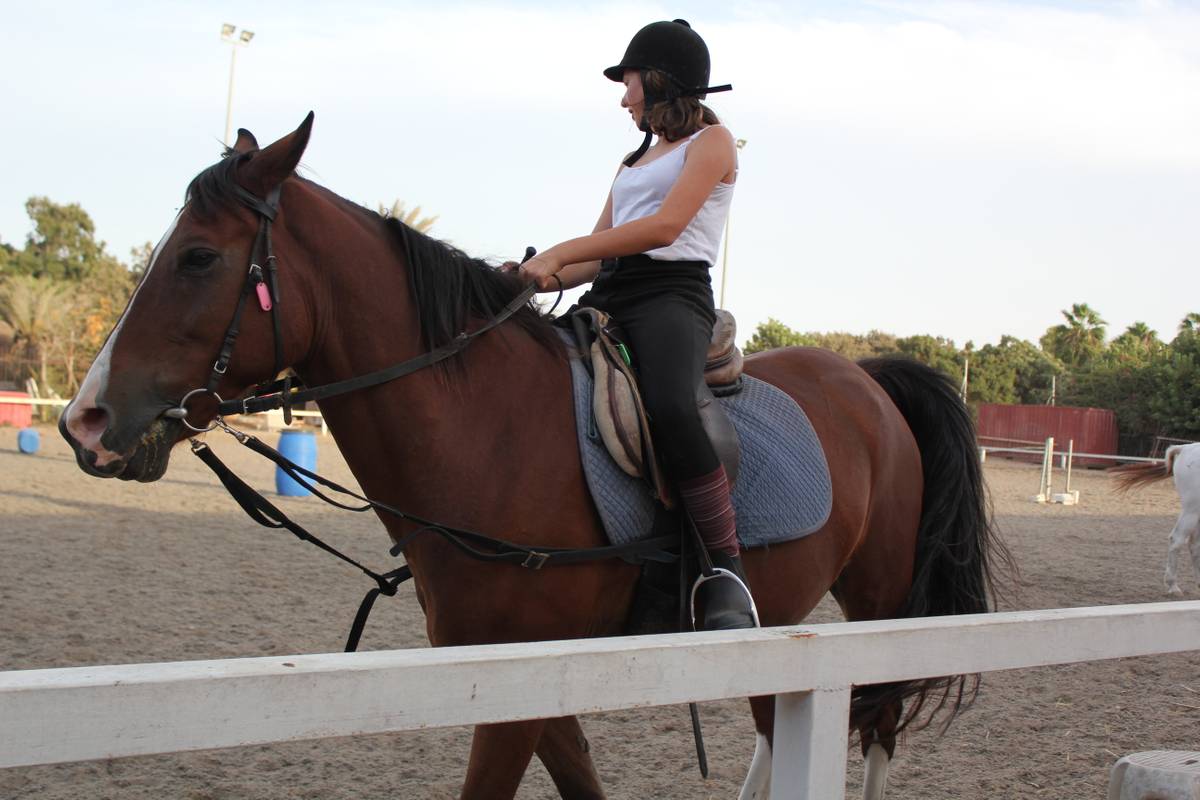The True Face of the BDS Movement
A former Cambridge professor and horse domestication expert snubbed a young Israeli girl emailing about school project




Shachar Rabinovitch is 13. She lives in Israel. As you can see, she loves horses. When her school asked her to write a term paper, she decided to write about her favorite animal. And because she’s a diligent and serious student, she went online and searched for an expert who could help her with her paper. She found Dr. Marsha Ann Levine, a lecturer in Cambridge University whose areas of research include “Palaeopathology and the origins and evolution of horse husbandry.”

In her imperfect English, Rabinovitch wrote Dr. Levine, identified herself as an Israeli schoolgirl, and asked four basic questions about the evolution of different horse breeds and their interaction with humans. Then, in a sweet touch, she added: “I know you are a very important person and I’ve read your article about horses (Domestication, Breed Diversification and Early History of the Horse) and I love horses very much and it will be an honor if you will answer my question.”
Dr. Levine’s response wasn’t late in coming. Here it is in full:
Dear Shachar Rabinovich
I’ll answer your questions when there is peace and justice for Palestinians in Palestine.
I am a member of Jews for Justice for Palestinians. I support Boycott, Divestment, Sanctions. You might be a child, but if you are old enough to write to me, you are old enough to learn about Israeli history and how it has impacted on the lives of Palestinian people. Maybe your family has the same views as I do, but I doubt it. So, I suggest that you look at this link.
Yours Sincerely,
Dr. Marsha Levine
I wrote to Dr. Levine to ask why even an ardent supporter of BDS would hold a child—who is not only a private individual but one too young to vote for a government or serve in an army or partake in any other meaningful act of citizenship—responsible for the policies of her country. I asked what kind of an adult would treat a curious and respectful adolescent seeking knowledge this way. I inquired why, as an academic, she considered her innate bias against all Israelis, even 13-year-old ones, paramount to her scholarly mission to educate about her chosen area of research. No answer ever came.
Shachar’s father, on the other hand, did write back. His family lives in Zikhron Ya’akov, he told me, and his daughter studies at a regional school for nearby kibbutzim and moshavim, administered by a regional council that also has a number of Arab villages in its jurisdiction and is, he said, “a very plural and shared environment.”
“I always treated kids as out of the equation,” he said. “For me, as long as a kid is not holding a knife, a rock, or justify violence, is just a kid and I need to help him regardless what his parents do or think. This is why I was so angry from this response to the mail my girl sent.” Political arguments, he concluded by saying, “are something that should be conducted by adults.”
Alas, the BDS movement doesn’t have any decent ones available.
Liel Leibovitz is editor-at-large for Tablet Magazine and a host of its weekly culture podcast Unorthodox and daily Talmud podcast Take One. He is the editor of Zionism: The Tablet Guide.